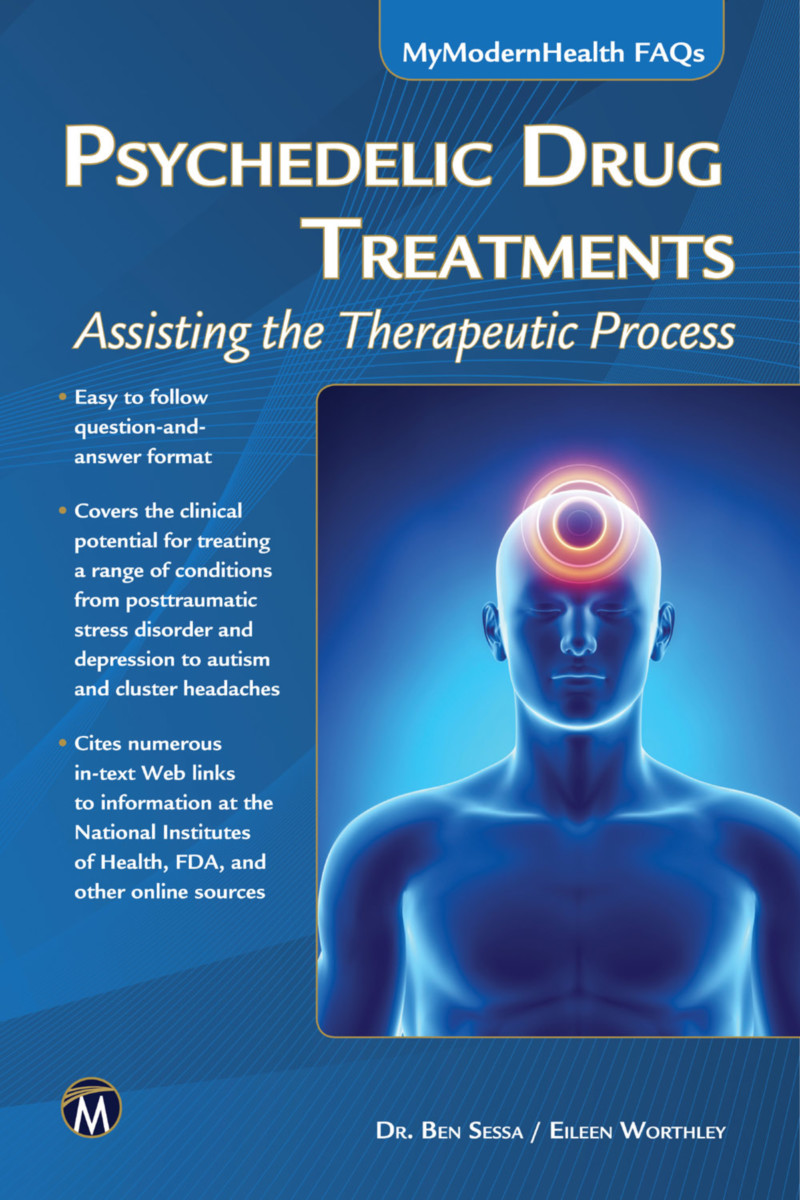Psychedelic Drug Treatments
Assisting the Therapeutic Process
- Publisher
Mercury Learning and Information - Published
8th March 2016 - ISBN 9781936420445
- Language English
- Pages 60 pp.
- Size 6" x 9"
Library E-Books
We are signed up with aggregators who resell networkable e-book editions of our titles to academic libraries. These editions, priced at par with simultaneous hardcover editions of our titles, are not available direct from Stylus.
These aggregators offer a variety of plans to libraries, such as simultaneous access by multiple library patrons, and access to portions of titles at a fraction of list price under what is commonly referred to as a "patron-driven demand" model.
- Publisher
Mercury Learning and Information - Published
29th February 2016 - ISBN 9781937585587
- Language English
- Pages 60 pp.
- Size 6" x 9"
E-books are now distributed via VitalSource
VitalSource offer a more seamless way to access the ebook, and add some great new features including text-to-voice. You own your ebook for life, it is simply hosted on the vendor website, working much like Kindle and Nook. Click here to see more detailed information on this process.
- Publisher
Mercury Learning and Information - Published
29th February 2016 - ISBN 9781937585594
- Language English
- Pages 60 pp.
- Size 6" x 9"
Psychedelic Drug Treatments: Assisting the Therapeutic Process provides information about current and quite viable investigation into reviving and progressing with neurological research that began in the middle of the 20th century and was brought to a halt when certain drugs were banned in the 1970s. Using a question/answer format, the book will introduce you to the way in which the chemical compounds known as psychedelics affect the brain, provide you with the definitions of key terms particular to the neurological and psychological vocabulary, describe the specific disorders that can realistically be helped or relieved through treatment with psychedelics, and offer information with regard to current research being conducted in the field. This text will discuss the history of the earlier research efforts and will examine the likelihood of a resurgence of interest in the successful development of methods and practices of clinical therapy assisted by psychedelic drugs. The purpose of this volume is to promote an understanding of the use of psychedelics as tools to assist therapy and to challenge the 40-year-old prejudices against research into the possible benefits of these drugs.
Features:
•Questions and answers about the history, research, and treatments related to psychedelic drugs
•Makes a case for the re-evaluation of psychedelics — LSD, MDMA (‘ecstasy’), DMT, psilocybin, ayahuasca, peyote, ibogaine, and more — and their clinical potential for treating a range of conditions from post-traumatic stress disorder and depression to autism and cluster headaches.
•Includes numerous in-text resources such as links to Web sites, videos, articles, blogs, etc. from NIH, FDA, YouTube, and university/clinical studies
Ben Sessa
Ben Sessa is a NHS Consultant Child and Adolescent Psychiatrist working in Taunton, Somerset (UK) with children and young people with a wide range of severe mental disorders. He trained in medicine at University College London and is a member of the Royal College of Psychiatrists.
Eileen Worthley
Eileen Worthley (Boston, MA) is a publishing professional who has worked as an editor of texts and journals in the health sciences.


